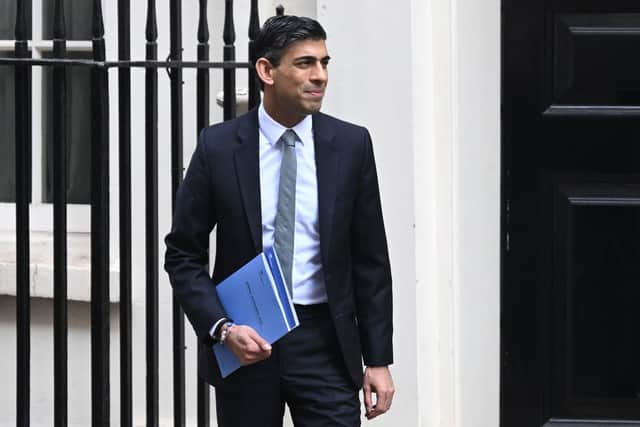'Some positive steps, but many small firms wanted to see more': Business-leaders react to relevant measures in Spring Statement 2022
Mr Sunak has raised the threshold for the relief that lets relevant firms reduce their employer National Insurance contributions bills each year. The allowance will increase to £5,000 from £4,000 as of April, and he said this will be worth up to £1,000 for each firm eligible – a category that encompasses about a third of all UK businesses.
Among those cheering the step was Federation of Small Businesses national chair Martin McTague, who said it had been the top ask for the organisation regarding the Spring Statement.
Advertisement
Hide AdAdvertisement
Hide Ad“We originally put forward the employment allowance as a targeted measure to help small firms, and it has now been expanded three times since its creation,” Mr McTague said, adding that it will help provide “crucial breathing space for our embattled small employers”.
Echoing this was the British Chambers of Commerce (BCC), whose director general Shevaun Haviland stressed it had long called for such action. However, she was among business leaders to brand the Spring Statement a “missed opportunity”, with the BCC boss saying it could have been used to “rebuild and renew the economy and ensure business has the resilience to weather the uncertain and volatile times ahead”
Sandra Rowley at card-payment specialist takepayments.com said small-business-owners “are bracing for a difficult few years as consumers feel the financial pinch”.
But she added that those across the UK would welcome the increase in the employment allowance. “Our recent survey revealed one-fifth of small business owners already increased salaries for open job vacancies in 2021 in order to attract workers, while a further two-fifths of business owners plan to do so over the course of 2022. The increase from £4,000 to £5,000 will bring some financial ease from these salary increases.”


Additionally, Susan Love, strategic engagement lead for accountancy body ACCA Scotland, said the move was a positive one, but the Chancellor “needed to use [the Spring Statement] to prioritise supporting Scotland’s small and medium businesses through the current onslaught of cost increases. While some positive steps were announced, many small businesses would have wanted to see more.”
Priorities
Other measures Mr Sunak outlined were reforming research-and-development (R&D) tax credits “so that they’re effective and better value for money”. He also explained that the UK government in the next autumn Budget will cut the tax rates on business investment. “People. Capital. Ideas. Three priorities for business tax cuts this autumn,” he summed up.
Martin Bell, partner and head of tax at accountancy firm BDO in Scotland, said: “The Chancellor confirmed further proposals to expand and improve R&D tax relief to supercharge innovation. This will hopefully be welcomed by business, as BDO’s most recent Rethinking the Economy survey showed that [R&D] was the most immediate business priority for 20 per cent of Scottish businesses.”
Also commenting from north of the the Border was the Scottish Chambers of Commerce, with a spokesperson stating: “The economic environment facing Scotland’s businesses remains challenging, and it’s essential that government in Westminster and Holyrood do everything they can to tackle inflation and rising cost pressures to help drive a strong economic recovery.”
A message from the Editor:
Thank you for reading this article. We're more reliant on your support than ever as the shift in consumer habits brought about by coronavirus impacts our advertisers.
If you haven't already, please consider supporting our trusted, fact-checked journalism by taking out a digital subscription.
Comments
Want to join the conversation? Please or to comment on this article.
